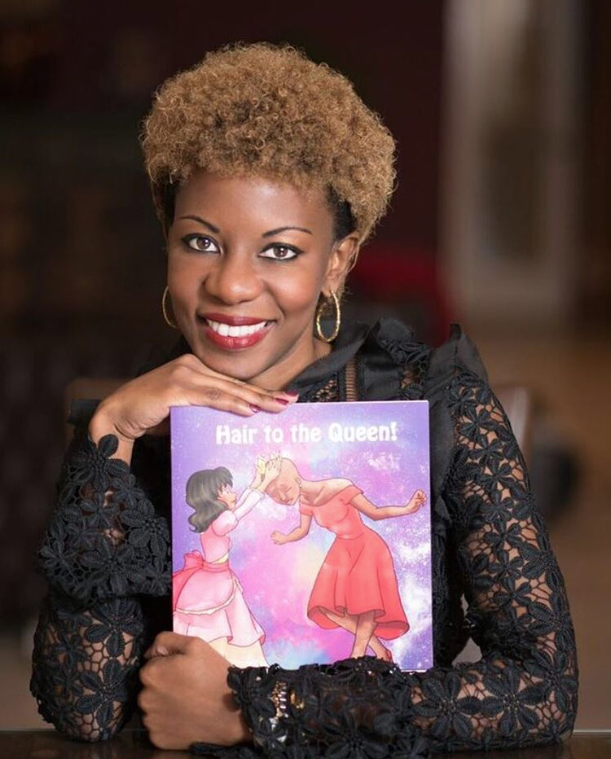
When it comes to cancer awareness, mother and cancer survivor Tamara B. Rodriguez believes it’s important to include children in the conversation.
Inspired by the love and support she received from her family after being diagnosed with breast cancer in 2014, Rodriguez wrote Hair to the Queen! in order to help adults discuss cancer with their kids.
After her diagnosis, Rodriguez wanted to talk about the disease with her two young daughters, but initially struggled to find the right words. “I wrote Hair to the Queen! to address the topic of cancer, while also emphasizing the importance of family and support,” the Haitian-born author tells ESSENCE. She explains that the book’s main character, Corazon, was inspired by her younger daughter, who “helped me find the strength and courage I didn’t know I had, when I needed it the most.”
Hair to the Queen! follows seven-year old Corazon as she prepares her costume for her birthday party hosted by her mother, who is battling cancer and wears a wig after losing her hair. With assistance from her father and sister, Corazon secretly uses the birthday celebration as an opportunity to plan a special surprise for her courageous mom.
Subscribe to our daily newsletter for the latest in hair, beauty, style and celebrity news.
The light-hearted book is Rodriguez’s homage to helping other families start the conversation surrounding the illness in a fearless way. Available on Amazon, net proceeds from the book will be donated to The Alfred Beliard Foundation, an Haiti-based organization dear to Rodriguez.
“[The organization] was created in memory of my grandfather, Alfred Beliard, who battled cancer throughout the latter part of his life. Its’ mission is to raise cancer awareness and prevention in the Northern region of Haiti,” Rodriguez added, expressing the importance of not disabling communities when offering aid.
“During the aftermath of the earthquake, many Haitian businesses in Haiti had to close when international organizations came to help, but did not reach out to local professionals for support,” she explains. “For example, many doctors had to shut down their clinics because international doctors came to Haiti and, instead of training Haitian doctors or leveraging their local expertise of the communities, they tried to work independently,” says Rodriguez.
“We are grateful for the international community wanting to help Haiti — and we urgently need it — but we must find a more effective way to involve and empower the local Haitian people, as well.” Currently, there is no oncologist in Cap-Haïtien, Haiti’s second-largest city.
The Foundation serves as a conduit for accessing medical experts and other invaluable resources for Haitians living in Haiti.